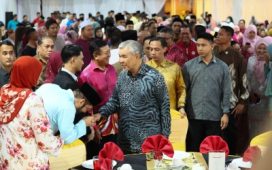For billions of people across Asia and in Asian diaspora communities around the world, this weekend marks the beginning of the lunar new year celebrations, a two-week holiday marking the end of the Zodiac year of the Tiger, and ushering in the Year of the Rabbit – or Cat, if you are in Vietnam. For the first few days commercial activity slows or stops, as people gather with their families. For many migrant workers in China, it is often the only time of the year they can return to home towns. The holiday is steeped in tradition, with a focus on family, food, reflection and looking forward.
MALAYSIA
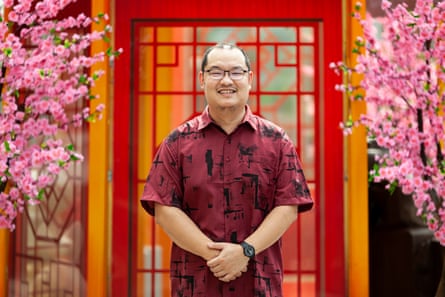
As a Chinese-Malaysian, lunar new year is all about passing the Chinese traditions on to the next generation, says Daniel Lee Lih Wei, a 37-year-old father of two who oversees research at Kuala Lumpur’s Sunway University and lives in the suburban town of Klang.
“I want my children to learn and experience the different and the rich culture and heritage we have and how that can be translated into their own experiences throughout their life’s journey,” he explains. “It’s about giving them that exposure and the memories that I used to have as a child.”
With that in mind, Lee Lih Wei says that the key things for his children, aged four and one, will be playing with the firecrackers, enjoying cookies and watching traditional lion dances. In elaborate and brightly coloured costumes, performances by lion dancers across the country are common during the build-up to the new year and are said to signify luck and prosperity.
Taking a week off work, Lee Lih Wei says his family will dress in coordinated outfits of varying shades of red as they reunite with family over two days. While tradition dictates that the male side of the family is visited on the eve of the lunar new year, Lee Lih Wei says modernisation means they’ll visit his wife’s family for lunch and his own for dinner.
CHINA
Last year Wen Xu wasn’t able to get to her home town in a small Anhui county, because of Covid restrictions. This time, the 26-year-old will travel from Hong Kong, where she recently moved to work as a reporter. Even two months ago this wouldn’t have been possible, but since China’s government ended its zero-Covid policy in December, Xu is among the hundreds of millions of Chinese able to once again make the journey home.
“This year for New Year’s Eve, my uncle, aunt, and cousin will come to visit us from a town nearby,” she says. “We will have a big reunion dinner with traditional family dishes such as steamed pork with rice flour and bone broth together.”
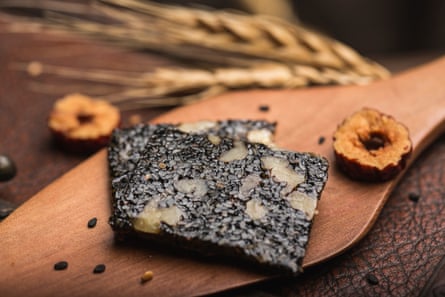
The week will be one of food and relaxation, reading new books and catching up with a cousin who has returned from Canada. She also plans to film her mother cooking a traditional Chinese health food, ejiao.
Growing up, Xu and her cousin would excitedly finish their new year’s meal and then rush upstairs together, to count the money they had received in red packets as traditional gifts from their elder relatives. “ Even now we are grown, my cousin and I still receive red-pocket money,” she says.
There’s some sadness this year, Xu adds, as her grandfather remains ill after Covid, and can’t join them for dinner. “He has to stay with an oxygen machine in his room on the third floor.”
The Year of the Tiger was great professionally for Xu, “but not so much relationship-wise”.
“My hope for next year is to find a partner who can experience things with me, be there for each other, and support each other.”
VIETNAM

“Like many Vietnamese families, we cook, we spend time thinking about the day and the year,” says Thanh Van, a 24-year-old hotel receptionist who lives in the northern city of Ninh Binh with her parents and younger sister. Known locally as Tet Nguyen Dan, or Tet, lunar new year is the most important occasion to Vietnamese people, including her family, she adds.
In the days beforehand, the family will spend hours in the kitchen making 12 chung cakes, a traditional new year dessert, which Van says symbolises the earth and “contains all the unique ingredients of the Vietnamese”, such as rice, pork, mung beans and banana. These are then gifted to family and friends alongside “lucky money”. Coveted in a red pocket, it is also a Vietnamese custom, she says, to gift money to family members in an act that ushers in luck for the year ahead. “It’s not important how much. It just means you received something lucky.”
The festivities will all culminate, she says, on New Year’s Eve when Van plans to watch the fireworks before visiting family members on New Year’s Day. “Vietnamese people believe what they do on the first day of the new year will affect the rest therefore they pay great attention to every word they say and everything they do,” she says.
TAIWAN
Stacy Liu, 32, is heading to her home town in Taoyuan, northern Taiwan, on Friday. The Taipei resident usually goes home for a whole week, to spend quality time with her family and catch up with childhood friends who are also back for the holiday.

“The first three days of lunar new year are the biggest and the most important days and you want to spend them with your family,” she says. When she was younger they would visit her father’s side of the family first, and then go to her maternal grandmother’s house. “The second day is traditionally when the married daughter goes back to her home,” she says. “My grandma is a very traditional woman so we could only go back to her house on that day – otherwise apparently it’s going to bring bad luck.”
But in recent years they have kept it small, with just Liu, her two younger sisters and their partners gathering at their parents’ home. “I find that more and more families are not doing the most traditional way with all the relatives coming home,” she says.
On New Year’s Eve the family will stay in, cooking traditional dishes like “Buddha jumps over the wall”, chicken soup, braised fish, and mustard greens.
“The leftovers from New Year’s Eve are enough for the next two days of dinner, but for lunch we’ll go out to a nicer restaurant,” she says. “We made a reservation about a month ago. You need to book ahead for New Year.”
Liu and her family will stay home and eat plenty, hike in the nearby mountains and play mahjong. She hopes this year will see the end of Covid worries, and the chance to build her Mandarin-tutoring business so she can work remotely and travel.
SINGAPORE
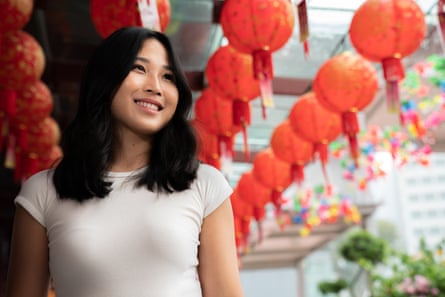
For Chua Yiying Charmaine, a 21-year-old real estate student at the National University of Singapore, lunar new year means leaving campus to travel home to the east of Singapore. Here, she’ll reunite with her parents, younger brother and sister for what she calls a “typical” celebration.
“Most Singaporean Chinese families prioritise the reunion dinner,” she explains. This is a large gathering of extended family the night before lunar new year. “I usually don’t get to spend that much time with my family any more because of work and school so I think this year will be especially nice.”
While it’s yet to be decided whether the festivities will take place at her parents’ or grandmother’s house, either way, Charmaine says she’ll begin cooking with her grandmother around 4pm, making traditional dishes such as bakwa, salty-sweet dried meat, and lo hei, a Cantonese-style raw fish salad. “Usually people buy it because it’s very tedious to make … but my family likes to make it from scratch.”
The few days prior will be packed, she says, with visits to loved ones; a pair of oranges in hand to offer as a traditional token. “I enjoy it because it’s a type of celebration, and I think it’s always good to have that kind of festivity in your life. It helps everybody loosen up a little bit,” Charmaine says.
HONG KONG
Tabitha Mui’s favourite childhood memories of lunar new year are visiting relatives and receiving “lucky money” in lai see (red packets) and “endless amounts of sweets and coin chocolates”.
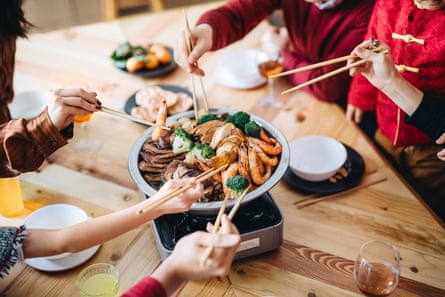
On New Year’s Eve, the extended family would gather together and share traditional dishes like braised Chinese mushrooms with fat choy (black moss seaweed), chicken, fish, and the Hakka-style poon choi (one bowl feast).
“The best things for kids were the long holidays and we wore Chinese costumes to school for new year parties,” she recalls.
“Now that I’m married, the most important thing is to have a New Year’s Eve reunion dinner with the older generation in our family. Both my husband and I come from big families so we’ll be busy. I’ll prepare presents for the older relatives and lai see money for the young ones.”
Hong Kong, like many parts of east Asia, were among the last to lift pandemic border restrictions and reopen for travellers. It makes Mui a little wary, now that visitors will be returning to the city. “I hope everyone in my family will stay healthy,” she says. “We’ll have to be cautious.”
“As for my hope for the Year of the Rabbit – I hope my work will be smooth, and I hope for world peace.”









